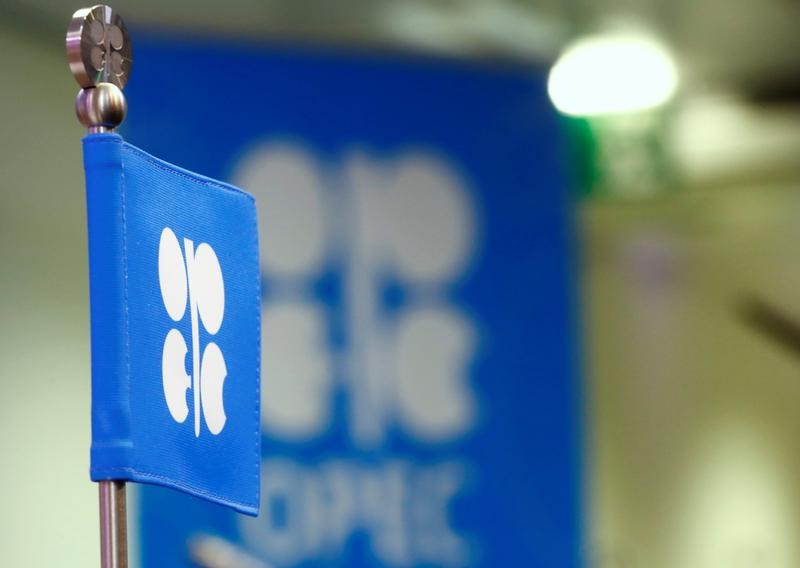By Alex Lawler
LONDON (Reuters) - OPEC reported an increase in its oil production in October to a record high led by members hoping to be exempt from the producer group's attempt to curb supply, weighing on prices and pointing to a larger global surplus next year.
The Organization of the Petroleum Exporting Countries pumped 33.64 million barrels per day (bpd) last month, according to figures OPEC collects from secondary sources, up 240,000 bpd from September, OPEC said in a monthly report.
The OPEC figures point to a bigger surplus than those of the International Energy Agency and underline OPEC's challenge in restraining supplies. Oil (LCOc1) fell below $45 a barrel after the report was released, having reached a 2016 high near $54 after OPEC's deal was announced in September.
OPEC made little mention of the surprise election of Donald Trump as the next U.S. president, beyond noting that currency markets had seen "significant" volatility. It left unchanged its 2017 forecasts for U.S. and world economic growth.
"More data over the coming months will provide further insight to allow a more detailed review of the U.S. economic situation, particularly after the most recent elections," OPEC said in the report.
To speed up a rebalancing of the market, OPEC agreed at a meeting in Algeria on Sept. 28 to cut supply to between 32.50 million bpd and 33.0 million bpd. The group hopes to finalise further details at a meeting on Nov. 30.
The latest figures could complicate OPEC talks on how to share out the cuts. OPEC experts meet to discuss this on Nov. 25 and on Nov. 28 will meet officials from non-OPEC countries, OPEC Secretary General Mohammed Barkindo said on Monday.
According to OPEC's report, October's supply boost mostly came from Libya, Nigeria and Iraq - members that have sought to be exempt from cuts due to conflict. Iran, seeking an exemption as output was held back by Western sanctions, also pumped more.
OPEC uses two sets of figures to monitor its output - figures provided by each country, and secondary sources which include industry media. This is a legacy of old disputes over how much countries were really pumping.
Iran told OPEC it produced 3.92 million bpd in October, while the secondary sources put output at 3.69 million bpd. From Iran's point of view, joining the OPEC supply cut deal from the higher figure would be more favourable.
OPEC issued a revised report on Friday to add Iraq's figure. Baghdad, which has questioned the accuracy of the secondary-source numbers, told OPEC its October output was steady at 4.77 million bpd - 210,000 million bpd more than the secondary sources estimate.
That aside, OPEC's report is the latest to show output is hitting new peaks. The October figure is the highest since at least 2008, according to a Reuters review of past OPEC reports.
In the report, OPEC trimmed its forecast of non-OPEC supply this year, although supply growth in 2017 is put at 230,000 bpd, little changed from last month.
With demand for OPEC crude in 2017 expected to average 32.69 million bpd, the report indicates there will now be an average surplus of 950,000 bpd if OPEC keeps output steady. Last month's report pointed to an 800,000 bpd surplus.

The 2017 surplus implied by the IEA in its latest report on Thursday is closer to 500,000 bpd.